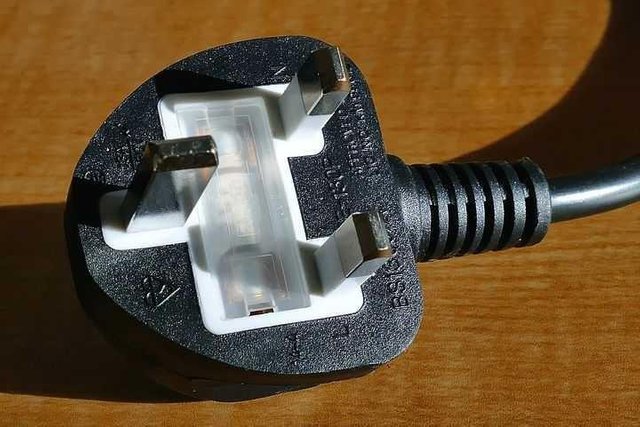Raising iGeneration Kids: Understanding the Challenges

Growing up, I don't ever recall my parents ever having to remind me and my brother to "go outside and play!". In fact, if we weren't in school, you could almost always bet that we would be outside of the house playing habulan (tag), taguan (hide-and-seek), or any other fun outdoor games we could think of with our friends. My mom would even have to call us in if it was already past sundown because we'd be having too much fun playing that we had lost track of time. Sadly, that's not the case anymore with our children nowadays who are growing up in this generation of virtual reality games and snapchat selfies.

While we can't argue the many great benefits of advanced technology and how it helps make our everyday lives easier, it is also difficult to ignore its overwhelmingly increasing downside effects that we see especially in our kids. Here are some examples:

Shortened Attention Span
More and more studies reveal that younger people nowadays have much less attention span. According to a study done by Microsoft in 2015, the average human attention span had dropped from 12 seconds in the year 2000, to 8 seconds. That's 1 second shorter than the attention span of a goldfish!

Low self-esteem
In this social media age, it's quite unusual to meet anyone between the ages of 11 and 21, (perhaps even younger) who are not in any social media such as Facebook, Instagram, Snapchat, Twitter or any similar app. With these social media sites, comes that constant need for validation and acceptance by their peers. My 12-year old daughter told me recently that a 15-year old girl at her school was asking around for people to "like" her new profile picture on Facebook and even went as far as paying at least 2 people to guarantee a "like".

Obesity and other health problems
If kids are offerered a choice between doing any outdoor physical activity or to stay at home where there is wi-fi , they will most likely choose the latter. And we don't need any specific scientific study to tell us that choosing to sit at home and engage with whatever chosen gadget, and likely doing very little to no exercise, is a major factor in childhood obesity that could lead to many serious health problems.

Depression
Millenials and post-millenials are being dubbed as the "loneliest generation" despite having hundreds or even thousunds of "friends" or "followers" on Facebook and other social media. US studies have shown that the use of smartphones and other gadgets caused significant changes on the mental health of our younger generation. These studies indicate that smart gadgets are isolating our kids from society, leaving them prone to depression, and worse, more vulnerable to suicide.
How can we help?

Limit the use of technology and provide other alternatives
I know, i know.. easier said than done right? Believe me, it's a constant struggle in our household too. But, I personally find that this rule is easier to implement with consistency. For instance, if you're going tell the kids: turn off all gadgets at 6pm, you'd have to be consistent. Initially you might need to set an alarm or remind them of this yourself and hopefully eventually they will voluntarily comply on their own.

Talk to your child and listen to what they have to say
Do you know the name of your child's best friend? Does he or she even have one? What's his or her favorite or least favorite subject at school? If you don't know the answer to any of these questions, then you might need to spend a little more time to get to know your kid better. During meals or when you tuck them into bed at night are probably the best opportunities to ask them about how their day was and you can tell them about yours.

Provide plenty of opportunities to be active
Spend time outdoors on the weekend or when school is out. Encourage them to play sports. Or even just as simple as having them take the dog for a walk.

Praise them
A few words of praise can go a long way! For instance, if your child willingly shares their toy with another kid at the playground without any prompting, you could compliment him or her for doing a good job sharing. Positve reinforcement encourages more good behavior. A child who is encouraged to do positve things are more likely to grow up with positive outlook in life and that won't be so bad.

All images are from https://pixabay.com
💜
@jazzybells
what?! i never knew any kids who are plastered to their tablets!! =p
:p
Great advices! Limiting their screen time and spending quality time with them is important.
Absolutely! Thanks for stopping by! 😊
Congratulations! This post has been upvoted from the communal account, @minnowsupport, by JazzyBells from the Minnow Support Project. It's a witness project run by aggroed, ausbitbank, teamsteem, theprophet0, someguy123, neoxian, followbtcnews, and netuoso. The goal is to help Steemit grow by supporting Minnows. Please find us at the Peace, Abundance, and Liberty Network (PALnet) Discord Channel. It's a completely public and open space to all members of the Steemit community who voluntarily choose to be there.
If you would like to delegate to the Minnow Support Project you can do so by clicking on the following links: 50SP, 100SP, 250SP, 500SP, 1000SP, 5000SP.
Be sure to leave at least 50SP undelegated on your account.